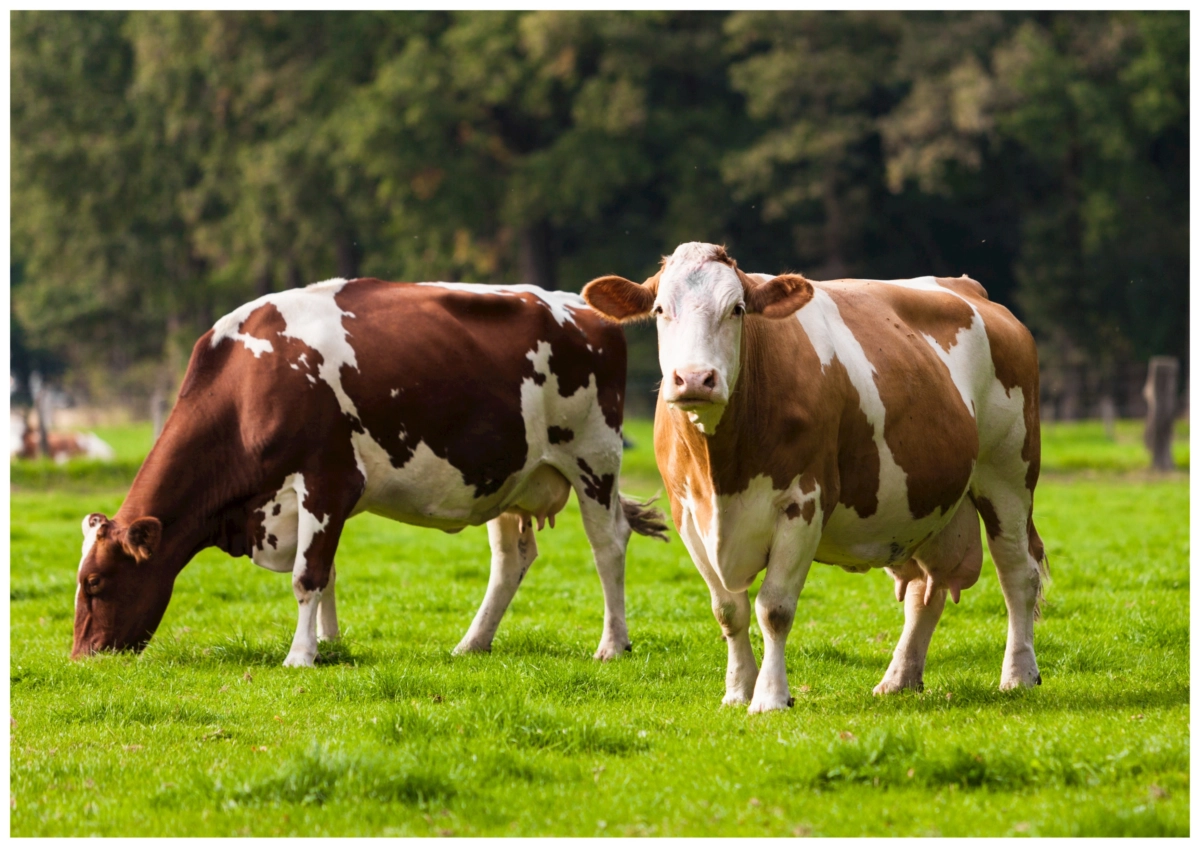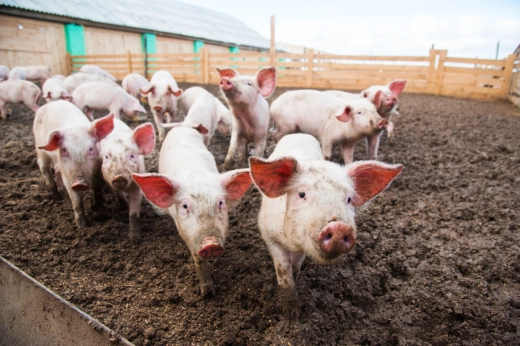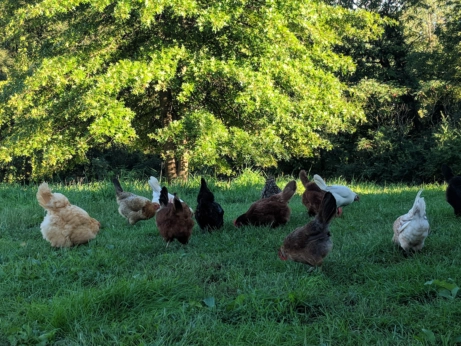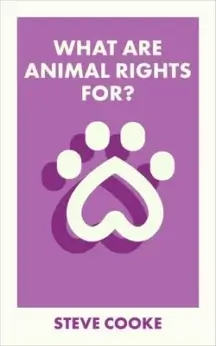In his new book, Steve Cooke paints a picture of a world where human-animal interactions are radically different than they are now.

For most people, it can be hard to imagine a society framed around animal rights. What would it look like? How would it work? And why, given humankind’s historic reliance on animals for food and resources, might we even consider it?
In his new book, What are Animal Rights For?, author Steve Cooke acknowledges this point straightaway. Norms surrounding how we treat animals are deeply entrenched, so a world where no one eats animals—and in fact, those animals have legal personhood—is so far afield from anything we are familiar with that it is hard to wrap our minds around.
But there is a long history of different groups and belief systems that value kindness toward animals or believe in the rights of animals, going back millenia. When it comes to what is codified into law today, the US has laws affording certain protections to animals, but they only go so far. Meanwhile, a movement to give animals the rights of personhood—a legal acknowledgment of the possession of rights—is unfolding globally. Around the world, this designation has been granted to animals, waterways, corporations and more.
Cooke, an associate professor of political theory at the University of Leicester, believes that a world based on animal rights is the type of world we should work toward. As far from our current reality as it is, he hopes that his book will give people some of the tools they need to start imagining that world.
This book, which will be featured in a launch event November 15, is part of Bristol University Press’ What is it For? series, which asks tough questions about what a better future could look like.
This interview has been edited for length and clarity.
Modern Farmer: Your book advocates for a society built around nonhuman animal rights, where animals have legal personhood. What inspired you to write this book?
Steve Cooke: My research is all about animal rights. I think animals ought to have rights, and there’s the question of how to get them to having rights. How do we move from the world we’re in now to the world we might have—the ideal world? I think lots of the puzzles around answering that question are connected with the imagination. One of the reasons for writing the book was to try and give people who read it the tools to imagine a possible future where nonhuman animals can have rights. And so the book is aimed at members of the public as well as academic audiences—I wanted to be able to appeal to as wide an audience as possible and just give them the conceptual and imaginative tools to think about this.
MF: You say that right now, animals generally only have rights insofar as they don’t conflict with human goals or interests. How can an understanding of nonhuman animal sentience change our perception of what rights animals should have?
SC: It relies on our scientific understanding of nonhuman animals, and the scientific understanding of a great number of the kind of creatures that we eat is that they are capable of very complex emotions. They’re capable of feeling fear, of pain, of happiness. But also, the more cutting-edge research on the psychology of animals shows that they can also experience things like grief, they can build complex relationships, anticipate the future, form friendships.
So, even animals like pigs and cows; cows have really rich emotional lives. You might get cows that are more likely—and you’ll know this if you’ve worked on a farm—to be curious or more fearful. So, they have individual personalities, they have preferred grooming partners and feeding partners. They have these rich lives because they’re social beings. We wouldn’t be able to farm them if they weren’t social beings. It’s kind of required by domestication and farming to have these animals that are capable of forming these relationships. So, we know that they’re capable of rich emotional lives. But when it comes to thinking about that in social settings and as individuals in the society that we live in today, very often, we downplay the sentience of these animals—that capacity to feel. And that’s a real problem for achieving change.

Pigs in a pen. (Photo from Shutterstock)
MF: In the book, you explain that there is a difference between animal rights and animal welfare. Can you explain that difference?
SC: One of the reasons I like doing this with nonhuman animals is it also helps us think about humans. When we think about human rights, fundamental human rights that we have, like the rights against being killed or assaulted, rights to property—those things prevent other people from using us in order to benefit themselves or to achieve social benefits.
A rights paradigm around animals would be nonhuman animals are provided the same sorts of protections that will prevent us from using another animal for the sake of our own benefit, whereas the welfare paradigm that governs most of our interactions with animals at the moment says that there are limits on what we can do to them. But those limits are really determined by human benefits. So, you should act to minimize suffering, but suffering isn’t ruled out if we can identify a benefit to ourselves.
The animal rights paradigm is focused on protecting the animal for the sake of the animal and not for the sake of us, whereas the welfare paradigm allows our benefits and our interests to sometimes overcome, to trump the most serious fundamental interests of other animals. And that’s the key difference.
MF: One of the big ways that humans interact with nonhuman animals is through agriculture. In the book, you explore the idea that an animal rights society wouldn’t have to exclude animals from agriculture completely, but it would look a lot different. What kinds of practices would remain, versus which ones would go away?
SC: This is tricky, because I’ve worked on farms for a long time. But, certainly, we wouldn’t be killing animals and breeding them for the sake of killing them. [Industrialized] farming practices would violate the most important animal interests—their interest in not suffering, their interest in continued existence, not being killed. So, those sort of fundamental farming practices of meat, milk, leather are going to be ruled out.
Now, there are cases where you can think of situations where you might keep animals in ways that respect their rights, that don’t harm them and that might benefit them. And then we could gain some benefits in return. So, there are cases where we can think of animals working as laborers almost, where they might gain labor rights in return. Their labor might contribute to plant-based farming. Perhaps, chickens laying eggs might not violate their rights or sheep that shed wool naturally or where the wool can be harvested without causing suffering. Those kinds of cases might be compatible with respect for nonhuman animal rights. Now, not all theorists are going to agree with me on that. And that does open up some scope between an animal rights position and a strict vegan position; they might not be necessarily the same thing. But you can see there are some highly reduced areas where we might continue to use animals.

A flock of chickens. (Photo from Shutterstock)
MF: Human diet is a big part of this conversation, but widespread diet shifts are notably hard to achieve. You point out in the book that, in an animal rights society, there are probably some living species that could supplement our diet. What are those? And why would they be options?
SC: If we’re talking about the fundamental rights of animals, those are grounded in sentience, and there might be some species that aren’t sentient. There are likely to be at least some animals that haven’t got a capacity to feel, have no sense of self that persists over time. An animal rights position might allow for the consumption or use of those.
The more likely scenario, I think, is cultured animal products, lab-grown in bioreactors, using harvested cells from animals that have been gathered without causing any suffering. And there’s massive amounts of research going into that at the moment, huge breakthroughs have been made, and there’s a good chance that in the future, meat will continue to be eaten. But it won’t ever have been anywhere near an actual animal, which is almost a stranger position to imagine for the future than the idea of animal rights to some people.
MF: You end the book writing about trust. In a lot of contexts, including agriculture, animals come to trust us and we ultimately end their lives. Why did you choose to include a discussion of trust between humans and other species in this book?
SC: Because I think rights aren’t enough. We don’t change anything in the world without changing people’s attitudes as well. The kind of ways that we relate to others really matter in terms of our intentions and our attitudes, as well as our beliefs that we have about the kind of rules that we ought to follow. And trust, I think, is one of the most important ways in which we interact with nonhuman animals, and not just in terms of farm animals, but also in terms of our companions. I like to try and think about the kind of world that would not only be just and everyone’s rights are protected, but also in terms of being good.
I think the nonhuman animals that we engage in relationships with ought to be able to trust us. There’s something very wrong with cultivating a relationship, that by its very nature puts one party in a position of vulnerability, that’s the nature of trust; when you trust someone you become vulnerable to them, you make it easier for that person to harm them. And so many of our relationships, particularly with animals, that we then go on to kill for meat, are that kind of relationship. We make them vulnerable. And our emotional relationship with them makes it easier for them to be transported to slaughter, to be moved around the farm to be separated from their children—these are the necessary components of animal agriculture. And I think they don’t just violate your right, they also breach your trust. And I think if we wanted a good society, it would be the kind of society where we could be trusted as individuals.

Here in the U.S. we annually consume an estimated TEN BILLION animals (not counting fish), most of whom (sic) never feel the sun on their backs or touch foot to earth, and pumped full of pharmaceuticals–a true Crime Against Nature. (Lest we forget, humans are animals, too.)
George Orwell already covered this subject in Animal Farm. This man and his book are a joke.